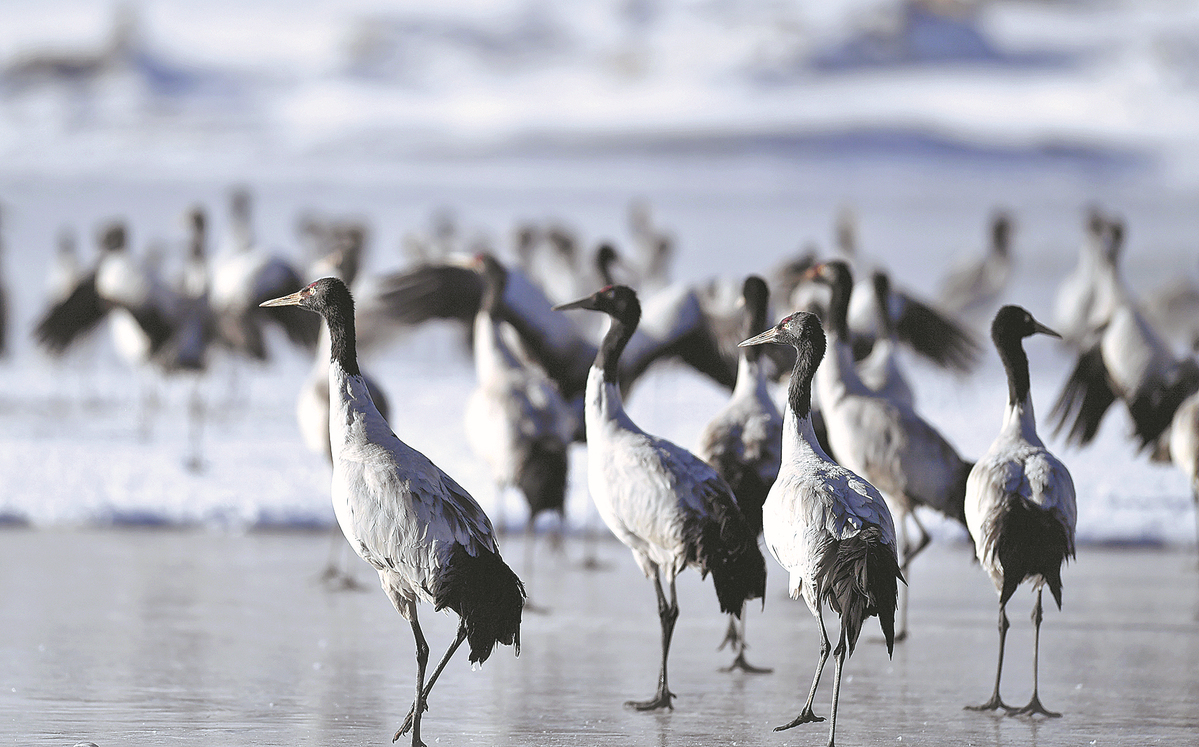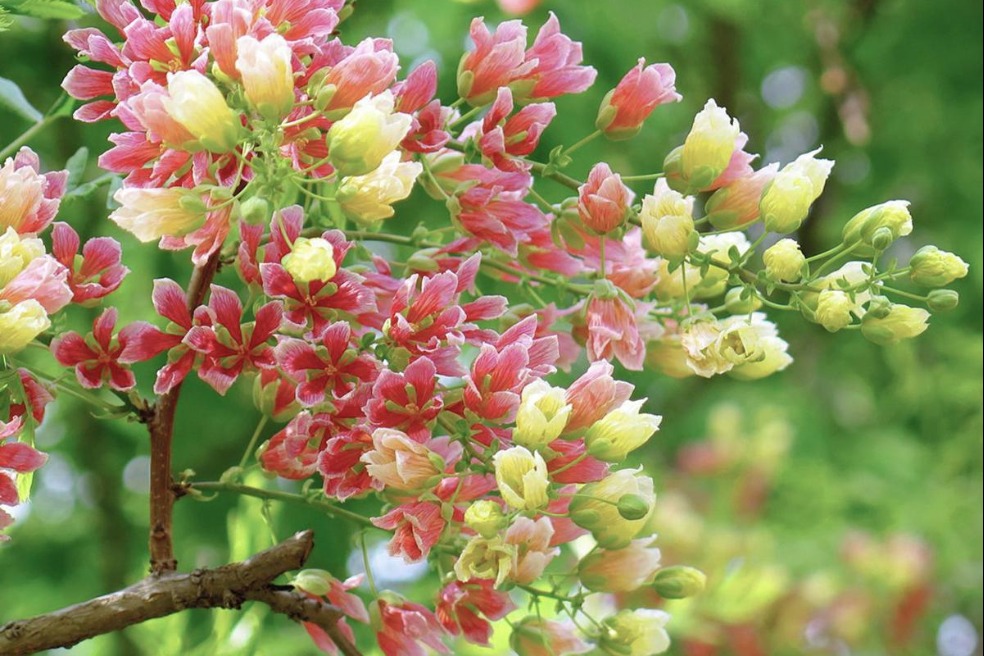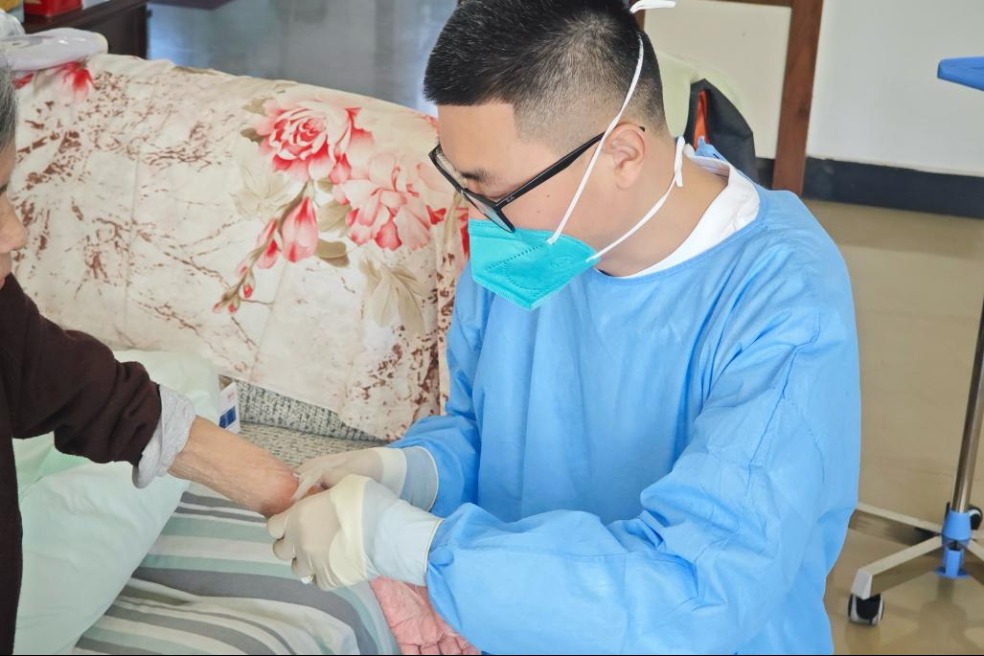Crackdown on illegal wildlife trade intensifies


Authorities in China have intensified the crackdown on crimes involving wildlife animals, with police resolving about 70,000 such cases over the past three years, according to the Ministry of Public Security.
The ministry launched a three-year nationwide operation targeting crimes against wildlife in 2020 after the Standing Committee of the National People's Congress, China's top legislature, approved the decision on prohibiting the trade of wildlife, and aiming to abolish the bad habits of eating wildlife.
The operation mainly targeted activities such as eating wildlife, harming rare and endangered wildlife, and illegal hunting and fishing.
Lyu Wuqin, head of the ministry's food and drug crime investigation bureau, said that public security organs worked closely with other administrative departments to solicit clues and combat criminal networks.
"Public security organs have thoroughly studied the law of such crimes, investigated relevant clues, and severely cracked down on the illegal hunting, purchase, transportation and sale of terrestrial wildlife in accordance with the law. The ministry also supervised the handling of 150 major cases involving wild animals," said Lyu.
From 2020 to 2022, police investigated about 70,000 criminal cases involving wildlife, detained 90,000 suspects and seized 1.37 million wild animals and 180,000 kilograms of wildlife products.
In one case released by the ministry, police in Ya'an, Sichuan province captured 14 suspects for hunting, trading and transporting 230 macaque monkeys, which are under national second-class protection. Their cases have been transferred to procuratorates for review and prosecution.
Starting in January 2020, the major suspect surnamed Chen and other members purchased monkeys from hunters 11 times and then sold the monkeys to legal companies for whitewashing before reselling them for profit.
Zhang Chungang, head of the public security bureau of Ya'an, said Chen's group had a strong awareness of investigations, and each link of illegal hunting, purchasing, transportation, marketing and whitewashing was independent but closely connected, which had formed a stable export channel for illegal wildlife, requiring police to work closely with other departments to enhance supervision in areas with a high incidence of such crimes.
Public security organs have also paid close attention to national parks and other protected natural areas and carried out joint law enforcement and rectification with the parks to ensure their protection, Lyu said.
"No hunting case occurred in the protected natural areas such as the Giant Panda National Park and the Northeast China Tiger and Leopard National Park," he said.
Additionally, public security organs from different places strengthened regional cooperation, jointly cracking down on illegal wildlife trade and criminal activities in border areas between provinces by holding symposiums and signing memorandums of cooperation, according to the ministry.
Provincial-level public security organs along the Yellow River have established a cooperation mechanism for ecological protection in the basin of the Yellow River to fully serve local ecological protection and high-quality development.
Lyu said that China's public security organs have strengthened international law enforcement cooperation, actively participated in international actions organized by Interpol, and investigated 109 cases involving overseas wildlife, demonstrating China's image as a responsible major country in wildlife protection.
Over the three years, the ministry has issued a series of law enforcement guidelines and normative documents on combating wildlife crimes, and the local government has also formulated several systems and norms, such as measures for connecting administrative law enforcement with criminal justice and guidelines for obtaining evidence against wildlife crimes, to effectively support the crackdown, he said.
On Feb 21, the ministry held a video conference and deployed public security organs across the country to carry out the "Kunlun 2023" special operation to maintain a highhanded posture toward crimes in the fields of food and medicine safety, and the protection of the environment, intellectual property and wildlife.
yangzekun@chinadaily.com.cn
- Unveiling China's Super Laboratory: How do extreme conditions unlock the ultimate secrets of cosmic matter?
- Shanghai's Rockbund Art Museum offers free admission for visitors
- Xi holds talks with Brazilian president
- Dough sculptor blends tradition with pop culture
- Xi congratulates Australian PM on reelection
- Xi holds welcome ceremony for Brazilian president





































